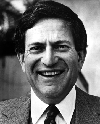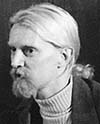Mission & History
“It is as if this most vital of human concerns is filled with too many dangers to allow it to be studied seriously.” –David B. Goodstein
Mission
Our ultimate goal is to encourage research on the many important and compelling topics related to sexuality. By acquiring, preserving, and making accessible relevant primary sources, we hope to have some impact on what people are able to know and think about human sexuality.
History
David B. Goodstein (Cornell ’54), longtime publisher of the Advocate, and Bruce Voeller, scientist and early leader of the National Gay Task Force, formed a friendship out of their mutual desire to help our society combat static conceptions and fear of sexuality. They both believed society would benefit greatly from increased research and understanding of the complex cultural and political contexts of sexuality. They wanted to see a major research library take on the responsibility of preserving the materials needed for this research. With their generous support and approval from Cornell’s Board of Trustees, Cornell University Library took on this mission with the establishment of the Human Sexuality Collection in 1988.


History
David B. Goodstein (Cornell ’54), longtime publisher of the Advocate, and Bruce Voeller, scientist and early leader of the National Gay Task Force, formed a friendship out of their mutual desire to help our society combat static conceptions and fear of sexuality. They both believed society would benefit greatly from increased research and understanding of the complex cultural and political contexts of sexuality. They wanted to see a major research library take on the responsibility of preserving the materials needed for this research. With their generous support and approval from Cornell’s Board of Trustees, Cornell University Library took on this mission with the establishment of the Human Sexuality Collection in 1988.
Goodstein made a significant financial contribution, and Voeller donated the accumulated library and archives of the Mariposa Education and Research Foundation. Early in the 1970s, Mariposa’s members, concerned that gay history was being forgotten and erased, started saving periodicals, pamphlets and books, films, art work, unpublished short stories, erotica, legal briefs, private correspondence, and diaries concerned with gay life and significant events in the American gay rights movement since World War II. These materials now comprise one of the nation’s most extensive collections on lesbian feminism and gay male culture, erotica, and politics available for research use.
Bruce Voeller was instrumental in providing a vision to both the Mariposa collection and the emerging Human Sexuality Collection at Cornell. He joined our advisory committee, which was comprised of other cultural and political activists, scholars, and librarians. This group got us off to a good start by determining how Cornell could best contribute to documenting important historical shifts in the social construction of sexuality.
Collecting Scope & Directions
The advisory committee recommended that U.S. lesbian, gay, bisexual, and transgender history and the politics of pornography be the Human Sexuality Collection’s primary subjects. These topics have stirred public controversy over time, provide windows to understanding changing views and experiences of sexuality, and are of great interest to researchers. Further, although inadequately represented by archives in the past, these areas have been central to the Cornell collection from its inception.
Our focus is on building a collection of depth that includes representation of different perspectives, preserves the experiences of young and old, and includes the contributions of women and people of color. Our attention goes particularly to groups that are excluded from mainstream culture.
A major strength of the collection is the behind-the-scenes looks it provides into national organizations working for lesbian, bisexual, gay, and transgender equality. In addition to national collections, we focus on the upstate New York region.
Numerous gifts of personal papers reveal the impact of AIDS on lesbian and gay communities.
Changes in erotica and the climate for producing it, especially the attitudes of women and sexual minorities toward it, are documented in manuscripts and periodicals.
Comic books, pamphlets, advice manuals, novels, poetry, artists’ books, and other rare print items trace views about sexual relations from the 19th century through the 21st.
Writers’ papers and publishing records show, among other things, how lesbian feminists, gay men, bisexuals, and transgender activists have shaped our cultural heritage.
In addition to augmenting existing subject strengths, Cornell will add news kinds of collections as times change. We will be guided into new topics by an interest in how definitions of sexual identity shift over time and the way in which personal choices and public discourse evolve. Two instances of this evolution are the emergence of a politicized bisexual movement and a new range of feminist perspectives on pornography in the 1980s. In the 1990s, issues of gender began to be discussed in new ways, with growing publications, lectures, and conferences focusing on intersex, transvestites, transsexuals, and transgender people and issues. Spurred by the political controversy around gay marriage, since the 1990s we have been looking more closely for sources showing changes in the social construction of the institution of marriage.
In addition to preserving paper documents, we house videos, film, art work, computer disks, and are even exploring how best we might preserve relevant web logs or blogs.
The Human Sexuality Collection is an integral part of Cornell’s Rare and Manuscript Collections, and the Division provides a broad array of sources in Sexuality & Gender Studies.